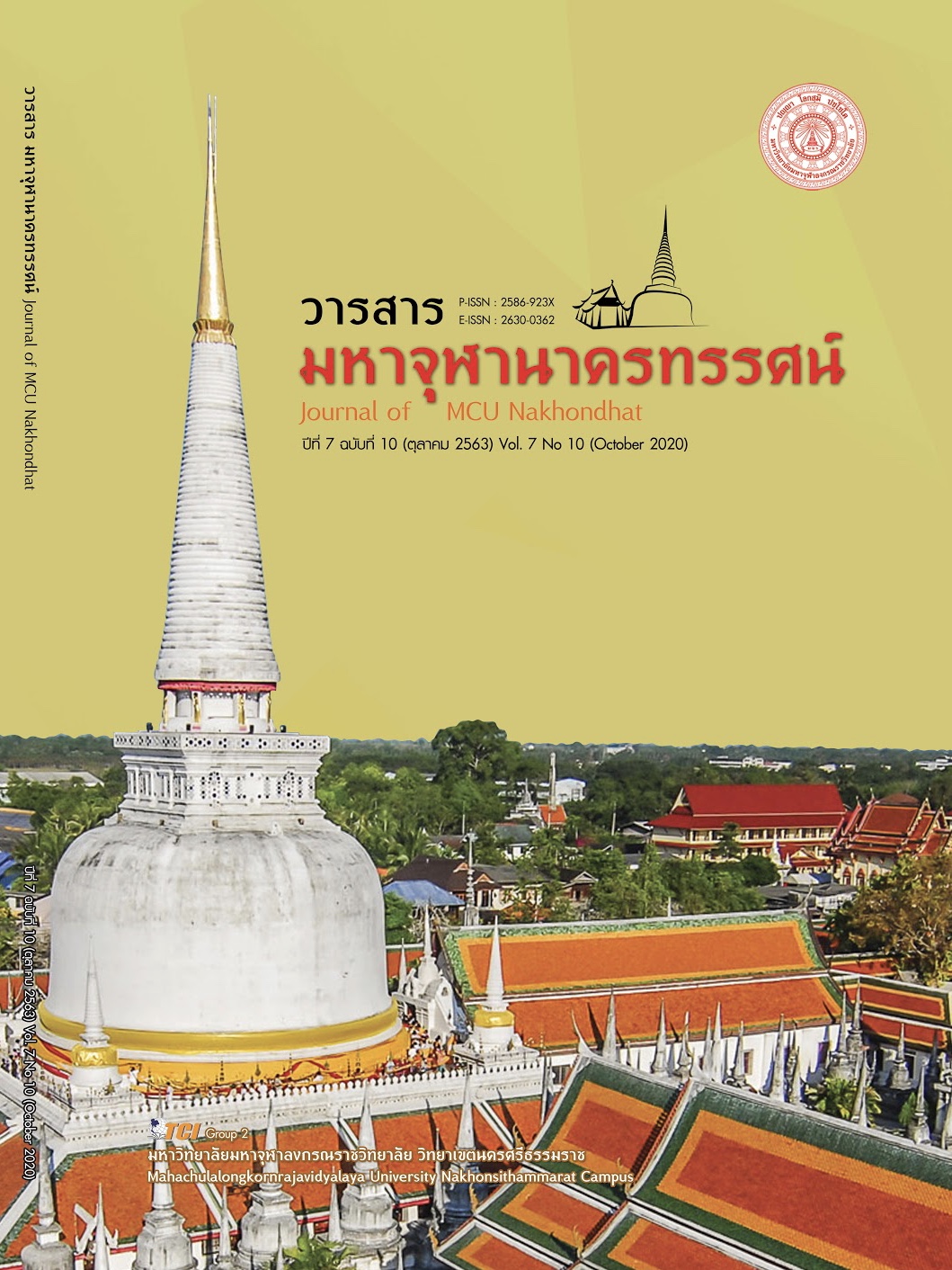THE IDEAS OF DECENTRALIZATION OF GOVERNMENT IN THE REPUBLIC OF INDONESIA TOWARDS THAILAND
Main Article Content
Abstract
This research article is a study of the decentralized form of governance by the rule of the Republic of Indonesia. It is seen that decentralization is considered to be a form of dominance with a mission to transfer the power to make decisions from central government to organizations to self - management. In addition, the decentralization of the rule of the Republic of Indonesia has a pronounced pattern. In other words, there is a provincial management caused by the needs of the people. Taxation can be effectively administered under its own province. On the other hand, Thailand is considered to have a decentralized administration as well, but there are differences with the Republic of Indonesia. In other words, the Republic of Indonesia. There is an evolution in the field of decentralization claims in each of the different colonial era. Indonesia's post - independence era and the reform era or the modern era of Indonesia. Inconstant, Thailand was only formed by the 1997 constitution that originated decentralization. If the information is compared to Thailand, it is found that the same thing is the intervention of the military government. At the end of the era, Suharto's military generals never returned to a military - backed government, and it was difficult to return to a country that was a form of centralization, but it was Thailand where the government had been switching to both civilians and soldiers until now. In the present, the Republic of Indonesia is a country that outstanding for its decentralization of local administration, and for Thailand, it is considered to be justice.
Article Details
References
ชำนาญ จันทร์เรือง. (2561). มองอินโด มองไทย ในเรื่องการกระจายอำนาจ. เรียกใช้เมื่อ 1 สิงหาคม 2563 จาก https://www.bangkokbiznews.com/blog/detail/645459
ทวีศักดิ์ เผือกสม. (2555). ประวัติศาสตร์อินโดนีเซีย: รัฐจารีตบนหมู่เกาะความเป็นสมัยใหม่แบบอาณานิคม และสาธารณรัฐแห่งความหลากหลาย. (พิมพ์ครั้งที่ 2). กรุงเทพมหานคร: เมืองโบราณ.
ประคอง มาโต และปิยะ ตามพระหัตถ์. (2562). รูปแบบการปกครองกับการเมืองการปกครองของไทย. วารสารวิจัยวิชาการ, 2(1), 171-182.
ภานุวัฒน์ พันธุ์ประเสริฐ. (2556). ระบบการปกครองท้องถิ่นของประเทศสาธารณรัฐอินโดนีเซีย. กรุงเทพมหานคร: สถาบันพระปกเกล้า.
ศาสตรินทร์ ตันสุน. (2560). รัฐธรรมนูญและสถาบันการเมืองที่เข้มแข็ง: ความสำเร็จของระบอบประชาธิปไตยในสาธารณรัฐอินโดนีเซีย. วารสารรัฐศาสตร์ปริทรรศน์, 4(2), 28-48.
สุภัทร ชูประดิษฐ์ และคณะ. (2562). แนวคิดการสร้างภาคีหุ้นส่วนระหว่างภาครัฐกับเอกชนเพื่อยกระดับการให้บริการสาธารณะขององค์กรปกครองส่วนท้องถิ่น. Journal of Suvarnabhumi Institute of Technology (Humanities and Social Sciences), 5(1), 469-483.
Bardhan, P. (2002). Decentralization of governance and development. Journal of Economic perspectives, 16(4), 185-205.
Devas, N. (1997). Indonesia: what do we mean by decentralization?. Public Administration and Development. The International Journal of Management Research and Practice, 17(3), 351-367.
Enikolopov, R. & Zhuravskaya, E. (2007). Decentralization and political institutions. Journal of public economics, 91(11-12), 2261-2290.
Firman, T. (2009). Decentralization reform and local‐government proliferation in Indonesia: Towards a fragmentation of regional development. In Review of Urban & Regional Development Studies. Journal of the Applied Regional Science Conference, 21(2). 143-157.
Fisman, R. & Gatti, R. (2002). Decentralization and corruption: evidence across countries. Journal of public economics, 83(3), 325-345.
Matsui, K. (2003). Decentralization in Nation State Building of Indonesia. IDE Research Paper No. 2. Institute of Developing Economies (IDE-JETRO). Retrieved August 1, 2020, from https://ir.ide.go.jp/dspace/bitstream/2344/ 810/1/ARRIDE_ResearchPapers_No.2_matsui.pdf
Nasution, A. (2017). The government decentralization program in Indonesia. In Central and Local Government Relations in Asia. Cheltenham, UK: Edward Elgar Publishing.
Robison, R. (2005). Fragmentation or nation-building?, in Burnell, P. & Randall, V., eds.Politics in the Developing World. Oxford: Oxford University Press.
Sulistiyanto, P. & Erb, M. (2005). Introduction’, in Erb, M., Sulistiyanyo, P.& Faucher, C., eds. Regionalism in Post-Suharto Indonesia. Abingdon, New York: RoutledgeCurzon.
Tikson, D. T. (2008). Indonesia towards decentralization and democracy’, in Sato, F., ed. Foundations for Local Governance: Decentralization in Comparative Perspective. Heidelberg: Physical-Verlag.


